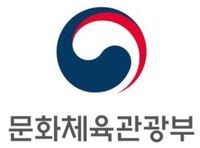Starting July 1, 2025, health club and swimming pool usage fees across South Korea have become eligible for income tax deductions, a move aimed at easing the financial burden of exercise while promoting national health and invigorating the sports industry. This policy expansion, announced by the Ministry of Culture, Sports and Tourism on June 30, marks a significant broadening of the cultural expense income tax deduction program, which previously applied only to cultural activities such as book purchases, performances, museum visits, and art gallery admissions.
Under the new system, employees earning less than 70 million won annually can claim a 30% income tax deduction on usage fees paid to registered health clubs and swimming pools, with a maximum deduction limit of 3 million won. This benefit applies to over 1,000 private and public sports facilities nationwide, including those registered under the Sports Facilities Act as swimming pool businesses, fitness businesses, and comprehensive sports facilities. However, not all facilities qualify—eligibility requires registration and participation in the program, and the list of participating venues is available on the Cultural Expense Income Tax Deduction Portal, where new facilities can also register.
Despite the promising outlook, uptake and awareness of the new tax deduction benefits remain limited, especially among health clubs. In Cheongju, for example, only 98 facilities have registered or applied for registration as eligible operators, with health clubs comprising the majority but showing a registration rate below 40%. This low participation rate is partly attributed to insufficient promotion and guidance from relevant authorities, leaving many facility managers and potential users unaware of the benefits.
“Out of about 230 health clubs in Cheongju, I doubt more than 10% of the managers are aware of this new tax deduction,” said Song Gui-yong, Executive Director of the Chungbuk Bodybuilding Association. His observation highlights a significant gap in communication and outreach efforts, which could hinder the policy’s effectiveness in encouraging wider use of sports facilities.
Newly opened health clubs are seizing the opportunity to attract members by registering for the cultural expense income tax deduction program. One such health club in Cheongju, which opened last month, applied for registration to offer the 30% deduction on usage fees. The club’s owner, Gong Se-hoon, explained, “Since we are a new business, we see this as a way to benefit both our members and ourselves. If customers can get more benefits, they’re more likely to join, and that’s good for everyone.”
Similarly, instructors at health and Pilates businesses report an increase in new memberships since July. Lee Hye-ri, a lead instructor at a local Pilates and health center, noted, “Some people hesitate to invest in exercise as leisure, but when they learn they can get a tax deduction, they’re more willing to spend. We’ve seen a rise in new members since this month.”
However, the program’s nuances complicate its full adoption. Not all sports facilities are eligible; for instance, Pilates studios registered as educational facilities for tax exemption purposes cannot offer this income tax deduction benefit. Moreover, costs for personal training (PT) sessions or swimming lessons must be carefully accounted for. If these fees are not separated from general facility usage fees, only 50% of the payment is recognized for deduction purposes. This means facilities often need to install new card payment terminals to differentiate charges, an additional financial burden.
One Pilates business representative, speaking anonymously, shared, “For health-only payments, the existing card terminals suffice. But for Pilates classes, only half the payment qualifies for deduction, so we have to get a separate card terminal just for that.” This requirement adds complexity and cost for operators, potentially discouraging some from registering for the program.
The government advises consumers and businesses to verify eligibility before enrolling. The Ministry of Culture, Sports and Tourism urges users to check whether their chosen facility is registered on the cultural expense income tax deduction website to ensure they can benefit from the deduction. This step is crucial because only registered facilities can offer the tax deduction, and not all sports venues have signed up yet.
According to a ministry official, “Through this expansion of income tax deductions, citizens can use sports facilities with less financial burden, and we expect positive ripple effects on the sports industry. We encourage more businesses to participate so that consumers can enjoy these benefits and operators can see increased sales.”
While the policy holds promise for boosting physical activity and supporting the sports sector, the current low awareness and participation rates suggest more robust promotion and clearer guidance are needed. Without these, many workers eligible for the deduction may miss out on the opportunity to reduce their exercise costs, and sports facilities may not fully capitalize on the potential to attract new members.
In sum, the July 2025 expansion of cultural expense income tax deductions to include health clubs and swimming pools is a welcome development for South Korea’s public health and sports industries. Yet, its success hinges on better communication, streamlined administrative processes, and wider registration among sports facilities. As the summer unfolds, all eyes will be on how effectively this initiative translates into increased sports participation and healthier communities.

